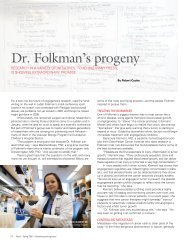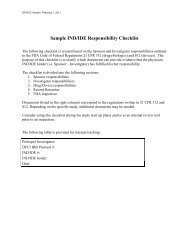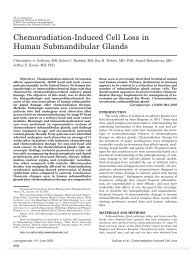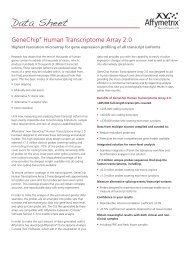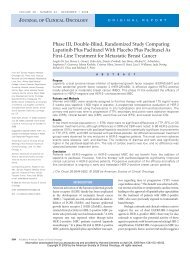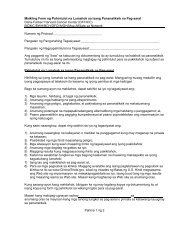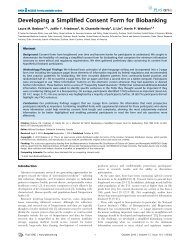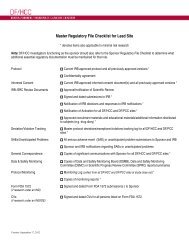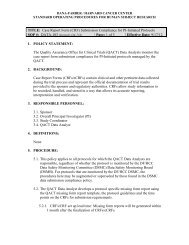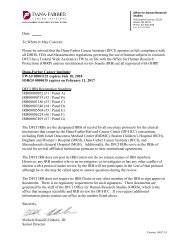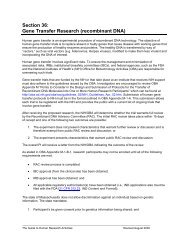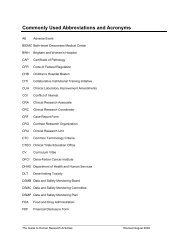Scientific Presentations Summer 2009 - Dana-Farber/Harvard ...
Scientific Presentations Summer 2009 - Dana-Farber/Harvard ...
Scientific Presentations Summer 2009 - Dana-Farber/Harvard ...
You also want an ePaper? Increase the reach of your titles
YUMPU automatically turns print PDFs into web optimized ePapers that Google loves.
Determination of Elafin’s role in cellular proliferation<br />
in the ovarian cancer microenvironment<br />
Amber Channer<br />
Mentor: Ronny Drapkin, MD, PhD<br />
<strong>Scientific</strong> Advisor: Adam Clauss, PhD<br />
<strong>Dana</strong>-<strong>Farber</strong> Cancer Institute<br />
Ovarian cancer is a major cause of cancer-related mortality in women worldwide.<br />
Unfortunately, the lack of efficient screening methods results in the majority of patients<br />
being diagnosed with late stage ovarian cancer, when a surgical cure is highly<br />
unlikely. Although most patients with advanced stage disease initially respond to<br />
chemotherapy, the majority ultimately relapse with chemo-resistant tumors. Therefore,<br />
there is a pressing need to develop serum biomarkers for early detection. We<br />
have previously described two potential biomarkers: HE4 and Elafin. Both are located<br />
in the WAP locus on chromosome 20q13, a region frequently amplified in<br />
ovarian cancers. The FDA recently approved the HE4 ELISA test, in conjunction<br />
with CA125, to monitor patients with ovarian cancer for recurrence. Elafin is a secreted<br />
serine protease inhibitor, which has shown to specifically inhibit Elastase, a<br />
serine protease. We know that the protease function of Elastase is important to release<br />
TGF-ß and thereby active it. TGF-ß (Transforming Growth Factor) is a secreted<br />
protein that mainly functions to inhibit epithelial proliferation, tumor development<br />
and morphogenesis. During oncogenesis, TGF-ß is silenced and cannot control the<br />
cell cycle, thus enabling cells to grow uncontrollably. This work aims to characterize<br />
the role Elafin plays in the ovarian cancer microenvironment. We hypothesize that<br />
by inhibiting Elastase, Elafin prevents the release of active TGF-ß. To analyze we will<br />
transform a panel of ovarian cell-lines with either wild type Elafin, which has been<br />
previously shown to increase cellular proliferation, or two mutated forms of Elafin<br />
(M25K and M25G). The mutation of methionine to a lysine or a glycine generates<br />
a protein that no longer functions as a serine protease inhibitor. By comparing the<br />
proliferation effect of the wild type Elafin versus the mutated counterpart, we will be<br />
able to tell whether the serine protease inhibitor function of Elafin is necessary for its<br />
role in increasing cellular proliferation.



